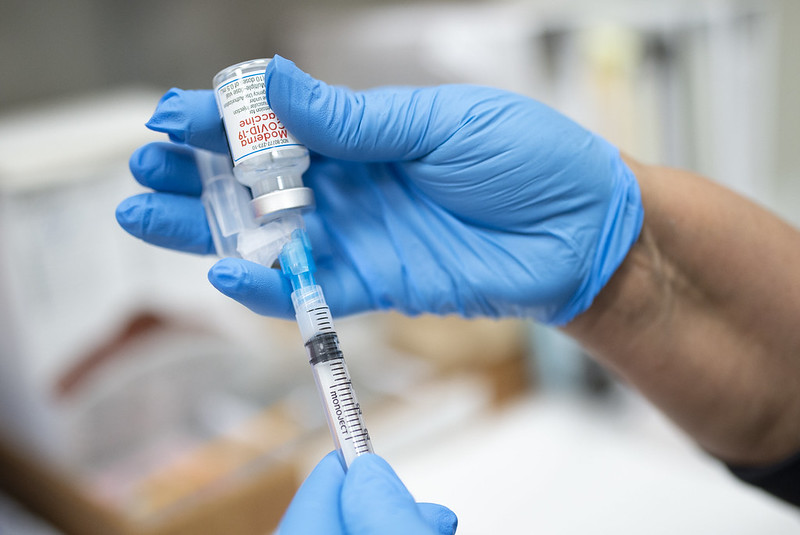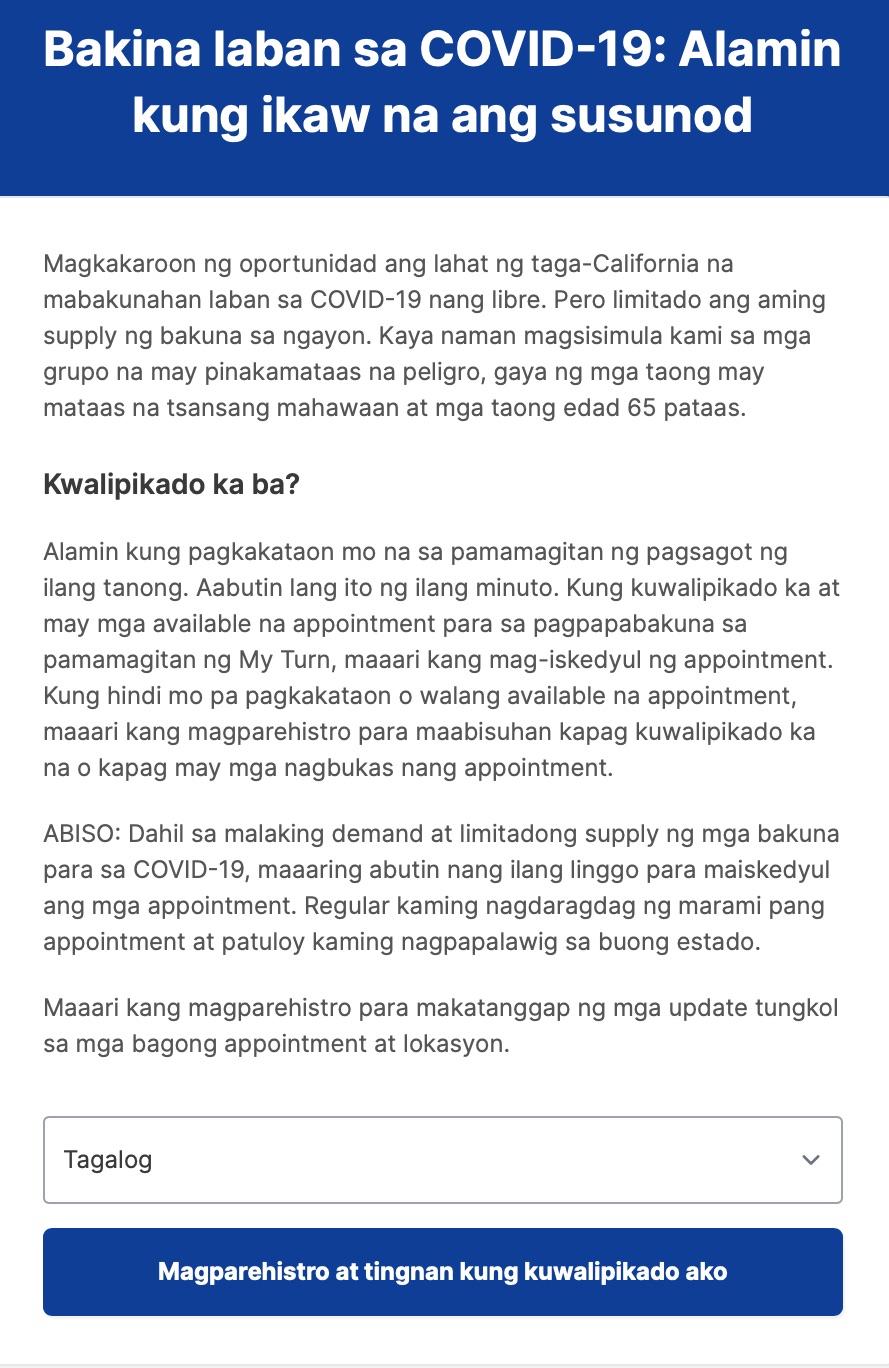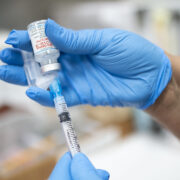
CALIFORNIA’S COVID-19 vaccine scheduling tool My Turn is now available in 12 languages, including Tagalog.
MyTurn.ca.gov — a website that allows the state’s residents to schedule appointments and be notified when they’re eligible — has been updated to include five new languages in an effort to be accessible to more residents, the California Department of Public Health announced on Monday, March 22.
“California’s remarkable wealth of diversity is always top of mind as we create and perfect the tools that will ensure every resident can easily access life-saving COVID-19 vaccines — regardless of the language they speak,” said Tomás Aragón, CDPH Director and State Public Health Officer. “The My Turn website and hotline play a key role in alerting Californians when they are vaccine eligible, and helping them schedule an appointment, so we want to ensure it is accessible to everyone.”
The department said 1.6 million appointments have been scheduled through the platform since its launch on Jan. 25.
The website is now available in Armenian, Japanese, Khmer, Punjabi, and Russian, along with languages already offered: Chinese (Simplified), Chinese (Traditional), Korean, Spanish, Tagalog, Vietnamese, and English.

By going to MyTurn.ca.gov, residents can find out whether they’re eligible for the vaccine by answering a few questions. If they’re eligible, they can schedule an appointment; if not, they can register to be notified when they’re eligible or when appointments open up.
Questions include age range, whether the individual has certain conditions that put them at risk for extreme complications from COVID-19, and what type of industry they work in.
Individuals who do not have access to the internet can sign up for an appointment by calling My Turn’s toll-free hotline 1-833-422-4255, open weekdays 8 a.m. to 8 p.m., and weekends from 8 a.m. to 5 p.m. My Turn operators can provide on-demand assistance in English and Spanish, translators who speak more than 250 languages are also available as needed.
Currently, California residents who are eligible for the vaccine include health care workers; long-term care residents; individuals over the age of 65; those who work in education and childcare, agriculture and food and emergency services; people who live or work in congregate residential settings (e.g. incarceration/detention facility, homeless shelter, or behavioral health facility); public transit workers, including airport workers for commercial airlines; and individuals age 16-64 who are at higher risk.
Vaccines are available for about 4.4 million people who are considered at higher risk for serious COVID-19 illness. Those individuals include cancer (current with weakened immune system), chronic kidney disease (stage 4 or above), chronic pulmonary disease (oxygen dependent), down syndrome, solid organ transplant (leading to a weakened immune system), pregnancy, sickle cell disease, heart conditions (such as heart failure, coronary artery disease, or cardiomyopathies but not hypertension), severe obesity (Body Mass Index ≥ 40 kg/m2), and Type 2 diabetes mellitus with hemoglobin A1c level greater than 7.5%.
Health care providers may also vaccinate individuals with developmental or other severe disabilities or illness if: The individual is likely to develop severe life-threatening illness or death from COVID-19 infection; acquiring COVID-19 will limit the individual’s ability to get ongoing care or services vital to their well-being and survival; and providing adequate and timely COVID care will be particularly challenging as a result of the individual’s disability. Individuals with “physical and behavioral disabilities,” such as those with a serious mental illness and substance use disorder, are also eligible. (AJPress)






